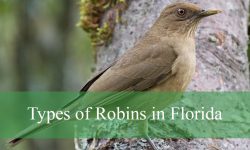Owning a raccoon might sound like a fun and adventurous idea. Their curious nature, playful behavior, and adorable faces make them seem like potential companions. Many people across the United States wonder if they can legally keep one as a pet, especially in wildlife-rich states like California.
However, when it comes to owning exotic or native wild animals, laws in California are among the strictest in the nation. Before you consider adopting one of these mischievous mammals, it’s essential to understand what state law says about keeping raccoons, what the consequences are, and what safer alternatives exist.
This article explores everything you need to know — from California raccoon ownership laws and permits, to wildlife rehabilitation exceptions, and why raccoons don’t make good pets in the first place.
Understanding Raccoons: What Makes Them So Tempting as Pets

Raccoons (Procyon lotor) are small to medium-sized mammals native to North America. Known for their masked faces, ringed tails, and clever hands, raccoons are intelligent and dexterous creatures. In the wild, they thrive in forests, wetlands, and even urban environments, adapting easily to human presence.
Their curious personality and ability to open doors, containers, and latches make them fascinating to observe. This intelligence often leads some people to think that raccoons can be trained like cats or dogs. However, raccoons are wild animals, not domesticated species. Even if they seem friendly, their behavior can change unpredictably as they mature, leading to aggression or property damage.
In short, while raccoons might look cute, they remain wild animals that are better admired from a distance — not kept as pets.
Is It Legal to Own a Raccoon in California?
The straightforward answer is no, it is not legal to own a raccoon in California. The state has strict wildlife regulations under the California Code of Regulations, Title 14, which clearly prohibits private ownership of raccoons as pets.
The California Department of Fish and Wildlife (CDFW) classifies raccoons as non-domesticated wild animals, and keeping one without proper authorization is considered illegal possession of wildlife. This means you cannot buy, sell, transport, or keep a raccoon as a pet in any part of California.
Even rescuing a baby raccoon you find abandoned in your backyard is not allowed unless you are a licensed wildlife rehabilitator. Attempting to care for it yourself can lead to legal penalties.
The Law Behind Raccoon Ownership in California
California’s wildlife laws are designed to protect native ecosystems and public safety. According to California Code of Regulations, Title 14, Section 671, certain wild species are classified as “Restricted Animals.”
Raccoons fall under this list, meaning they cannot be imported, transported, possessed, or released without a special permit. The purpose of these restrictions is to prevent diseases, protect native wildlife, and ensure that animals are not exploited or mistreated.
Reasons for the Restriction
- Disease risk: Raccoons are known carriers of rabies, raccoon roundworm (Baylisascaris procyonis), and other zoonotic diseases that can infect humans and pets.
- Ecological impact: If released or escaped, raccoons can disrupt local ecosystems by preying on birds, eggs, amphibians, and small mammals.
- Public safety: Adult raccoons can become aggressive, especially when stressed or threatened, leading to bites and scratches.
- Animal welfare: Raccoons require complex diets, space, and enrichment that are difficult to provide in captivity. Keeping them confined often leads to stress and poor health.
What Are the Penalties for Owning a Raccoon in California?
The penalties for owning a raccoon in California can be severe. If caught with a raccoon in your possession, you may face fines, confiscation of the animal, and even misdemeanor charges depending on the situation.
Legal Consequences Include:
- Fines ranging from $500 to $10,000 depending on the offense and whether it involves repeated violations.
- Seizure of the animal by wildlife authorities.
- Possible criminal charges for illegal possession or transportation of wildlife.
- Liability for damages if the raccoon causes injury or property damage.
In most cases, wildlife officers will remove the raccoon and relocate it to a rehabilitation center or sanctuary, if possible. However, if the animal is deemed too habituated to humans or a risk to the environment, euthanasia may occur — another reason why attempting to keep a raccoon is never recommended.
Are There Any Legal Exceptions?
There are very few exceptions under California law when it comes to raccoon ownership. Private citizens cannot apply for a “pet permit” — the law simply does not allow it.
However, special permits may be granted to certain individuals or organizations for legitimate reasons.
Legal Exceptions Include:
- Licensed wildlife rehabilitators who temporarily care for injured or orphaned raccoons before releasing them back into the wild.
- Educational institutions or zoos that have obtained the proper CDFW exhibition permit.
- Scientific research facilities that study raccoon behavior, ecology, or disease transmission under strict supervision.
These permits are heavily regulated and require extensive documentation, facility inspections, and adherence to animal welfare standards.
Why You Shouldn’t Keep a Raccoon as a Pet
Even if it were legal, keeping a raccoon as a pet would be a terrible idea. Raccoons are not domesticated animals — they retain all their wild instincts and behaviors.
Behavior and Temperament
Baby raccoons may seem sweet and docile at first, but once they reach sexual maturity (around 6–9 months old), they become territorial, moody, and unpredictable. They may bite or scratch their owners, tear furniture, and destroy household items out of curiosity or frustration.
Health Risks
Raccoons can carry dangerous parasites and viruses transmissible to humans and pets. Rabies is the most serious concern, but roundworms and leptospirosis are also major risks. Handling a raccoon without proper vaccinations or precautions can expose you to these pathogens.
Diet and Care Challenges
Feeding a raccoon properly is difficult. Their diet in the wild includes fruits, insects, eggs, small animals, and crustaceans. Providing such variety at home is nearly impossible. Moreover, raccoons require large outdoor enclosures with trees, climbing structures, and water access — far beyond what an average household can provide.
Emotional and Behavioral Needs
Raccoons are highly intelligent and easily bored. Without constant stimulation, they develop destructive habits. Many owners who have tried raising raccoons eventually surrender them to sanctuaries once the animal becomes unmanageable.
What to Do If You Find an Injured or Orphaned Raccoon
It’s common in California to encounter raccoons, especially during spring and summer when mothers raise their young. You might come across a seemingly abandoned baby raccoon or an injured adult.
However, you should never try to care for it yourself. Not only is it illegal, but you could also endanger the animal or yourself.
The Correct Steps to Take:
- Observe from a distance — The mother might be nearby and will return once you leave.
- Do not touch or feed the raccoon. Human scent can cause the mother to abandon her young.
- Contact a licensed wildlife rehabilitator or local animal control agency.
- If you must handle the animal in an emergency (for example, to move it off a road), wear gloves and use a towel or box for safety.
California has numerous wildlife rescue centers trained to handle raccoon rehabilitation legally and safely.
Alternatives to Keeping a Raccoon as a Pet
If you’re fascinated by raccoons but want a legal way to enjoy their charm, there are safer alternatives that don’t break the law.
1. Volunteer at a Wildlife Center
Many rehabilitation facilities in California welcome volunteers to help care for injured wildlife. You’ll get to work with raccoons and learn about their behavior, all while supporting conservation efforts.
2. Adopt a Similar Domestic Animal
If you love raccoons for their intelligence and playfulness, consider adopting ferrets, cats, or dogs with similar curiosity and energy. These animals are legal, domesticated, and can form strong bonds with humans.
3. Observe Raccoons in Nature
Set up a motion-activated wildlife camera near wooded areas or parks. Watching raccoons in their natural environment can be both educational and entertaining without harming them or risking legal trouble.
Comparison: Raccoon Ownership Laws in Other States
While California has one of the strictest bans, raccoon ownership laws vary across the U.S. Some states allow limited private ownership under permit, while others prohibit it entirely.
States That Allow Pet Raccoons (With Permits)
- Arkansas
- Delaware
- Florida
- Michigan
- Oklahoma
- South Carolina
- Texas
These states usually require strict health checks, enclosures that meet welfare standards, and annual licensing renewals.
States That Prohibit Pet Raccoons Entirely
- California
- Hawaii
- Oregon
- Washington
- New York
- Nevada
In these regions, owning a raccoon can lead to criminal charges. Even transporting a raccoon across state lines into California is a violation of federal wildlife transport laws under the Lacey Act.
Ecological Role of Raccoons in California
Rather than keeping them as pets, it’s better to appreciate raccoons for their role in nature. As omnivorous scavengers, raccoons help maintain ecological balance. They control insect populations, clean up carrion, and disperse seeds through their droppings.
In California, raccoons inhabit coastal marshes, forests, and suburban areas. Their adaptability has allowed them to thrive alongside humans — sometimes too much, as they raid garbage cans and gardens. However, they are an essential part of the ecosystem, supporting biodiversity.
Respecting raccoons as wild animals helps maintain harmony between humans and nature.
How to Prevent Raccoon Problems Around Your Home
While raccoons can be interesting to observe, they often become nuisances if they find easy access to food or shelter around human homes.
Tips to Keep Raccoons Away
- Secure trash bins with tight-fitting lids or bungee cords.
- Avoid feeding pets outdoors, as leftover food attracts raccoons.
- Seal entry points under decks, attics, and crawl spaces.
- Use motion-activated lights or sprinklers to deter nocturnal visits.
- Harvest fruit trees promptly to prevent fallen fruit from luring wildlife.
These humane methods allow coexistence with raccoons without encouraging dependence or illegal contact.
What Happens to Confiscated Pet Raccoons?
When wildlife officials confiscate an illegally owned raccoon, the animal is usually evaluated by veterinarians or wildlife rehabilitators. If it is healthy and capable of surviving in the wild, it may be released back into its native habitat.
However, raccoons that have been raised in captivity often lose their fear of humans and struggle to survive independently. In such cases, they may be placed in sanctuaries or educational facilities. Unfortunately, if no appropriate facility is available, euthanasia may be the only option — a tragic outcome that underscores why private ownership is discouraged.
The Ethics Behind Keeping Wild Animals as Pets
Beyond legality, there’s a moral question: is it right to confine a wild animal for human enjoyment?
Wildlife experts argue that keeping wild animals as pets is unethical because it disrupts natural behaviors and contributes to illegal wildlife trade. Captivity can cause psychological stress, malnutrition, and reduced lifespan.
By refusing to buy or keep raccoons, you’re helping discourage wildlife trafficking and supporting the preservation of wild populations. Ethical pet ownership means choosing species that have been domesticated for centuries and can thrive in human environments.
Frequently Asked Questions About Raccoon Ownership in California
Can I get a permit to keep a raccoon in California?
No. California does not issue personal permits for owning raccoons. Only licensed rehabilitators, researchers, and educational institutions may hold them under strict supervision.
What if I already have a raccoon as a pet?
You must contact the California Department of Fish and Wildlife immediately. Keeping the animal is illegal, and authorities will determine the safest course of action for the raccoon.
Can raccoons be vaccinated against rabies?
Yes, but vaccination alone does not make them safe or legal pets. Rabies vaccines for raccoons are used primarily in wildlife management programs, not private ownership.
Are raccoons friendly with humans?
Young raccoons might seem affectionate, but as they age, their wild instincts return. They can become territorial, destructive, and sometimes aggressive.
What should I do if a raccoon bites me?
Seek medical attention immediately. Rabies transmission is possible through raccoon bites or scratches. Report the incident to local animal control.
Final Thoughts
So, is it legal to own a raccoon in California or not? The answer is clear — it is completely illegal to keep a raccoon as a pet in California. State wildlife laws are strict to protect both people and native species from harm.
While raccoons are fascinating animals, they belong in the wild, not in homes or cages. Instead of trying to domesticate them, admire their intelligence and adaptability from afar. Support wildlife conservation programs, volunteer at rehabilitation centers, or enjoy watching raccoons safely in nature.
By respecting these laws and understanding the risks, you’re helping ensure a healthy balance between humans and wildlife — a responsibility every Californian should take seriously.






